
In the hometown of Renaissance painter Piero della Francesca, the Tuscan borgo of Sansepolcro, the Kilowatt Festival, in its 20th year, examines how contemporary performance can foster “urban regeneration.” This year’s theme, “Excess of Reality,” entrusts performance with reformulating “a forgotten ethic of living.” The stakes are high—as they should. Although some established artists seemed disappointingly too self-referential, three emerging Italian choreographers of international standing, Marco Augusto Chenevier, Sofia Nappi, and Claudia Caldarano, along with their remarkable performers, incisively tackled the Festival’s theme, reigniting civil force into performance. I believe their works, with their varying aesthetics and trajectories, would capture the interest of American audiences too.

With a jump and a run from the public gardens (Giardini di Piero) to an old building (Circolo delle Stanze) in the heart of Sansepolcro, Augusto Chenevier’s Un solo respiro (One Breath) drags an intimate group of seven audience members into a different temporal and emotional world to recount the origination of the local tradition of crochet lacing. Throughout each room of the building, the Paris-based Italian choreographer and her dancers Océane Delbrel and Alessia Pinto, unfold the sisterhood interweaving the lives of local women who gave refuge to a Flemish woman. Banned from her country because pregnant, she taught them the art of crochet as an act of gratitude. Chenevier’s compositional and gestural economy (remarkably performed by Delbrel’s technical specificity and tenderness), where the shift of a chair can mark a sudden turn of events, bestows solemnity to the story and fills the otherwise stark rooms with a dramatic aura. Un solo respiro succeeds in leaving us with a trust in solidarity and mutual support –– a project much needed in times when women’s bodies are the locus of radical social divisions.
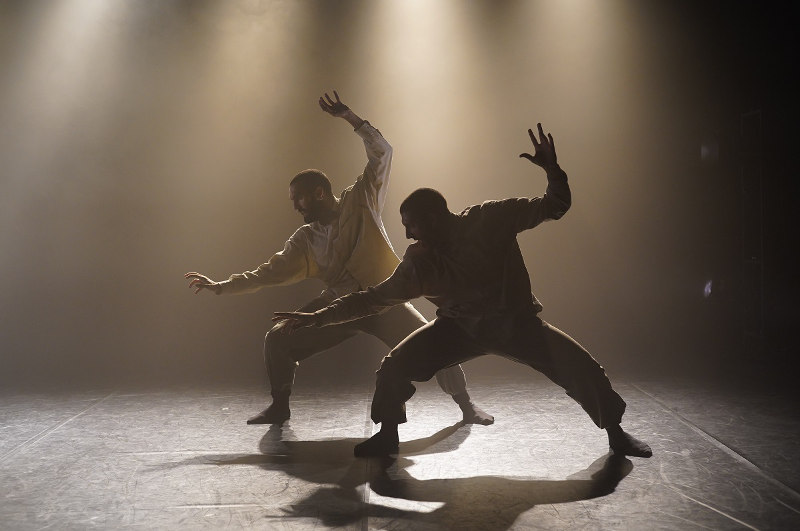
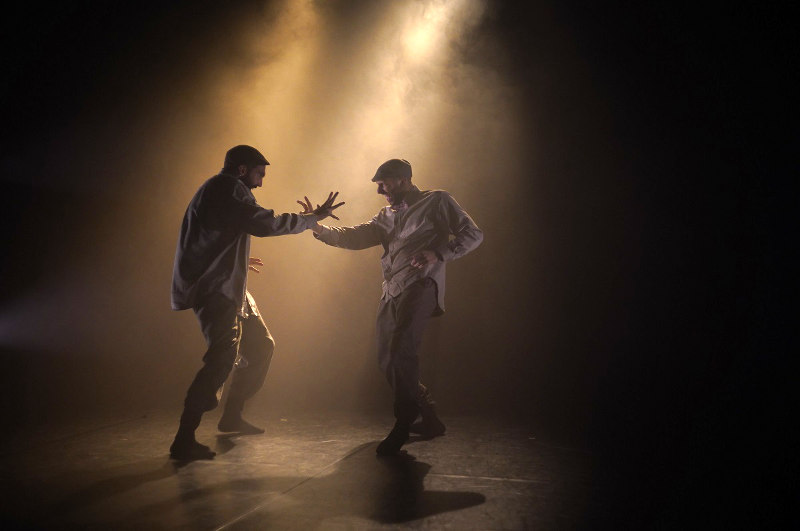
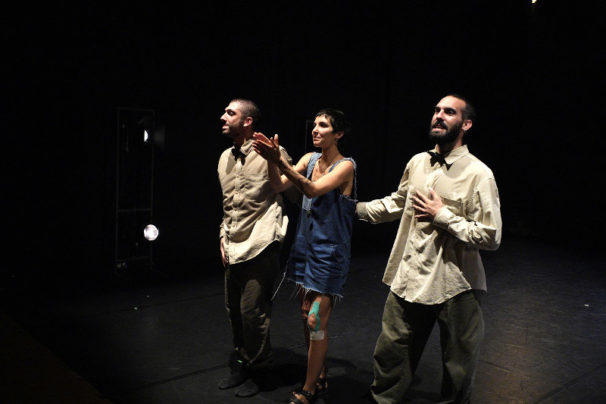
The choreographer’s own injury spurred Sofia Nappi to adapt her trio, Wabi-Sabi, into a duet for two magnificent performers, Adriano Popolo Rubbio and Paolo Piancastelli. The title’s Zen Buddhist concept refers to thriving through the beauty of imperfection. And, if the choreography wants to show that, it succeeded, even if there’s little-to-no imperfection to Popolo Rubbio’s and Piancastelli’s dancing. Their complicity (without the forced intimacy of so many post-pandemic choreographies) lies in their growing exchange of energy and constant commitment to skillfulness, performed with contagious enjoyment. This is perhaps Wabi-Sabi’s energizing ethics of living. While it’s undeniable that Nappi’s movement and atmosphere reference Hofesh Shechter and Gaga, this aesthetic choice turns out to be dramaturgically on point to manifest an irresistible vitalism, with astute compositional choices that reveal her original choreographic aptitude and show how to fashion global aesthetics in generative ways.
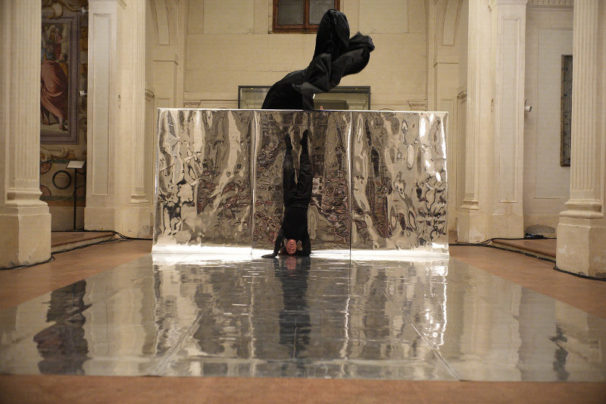
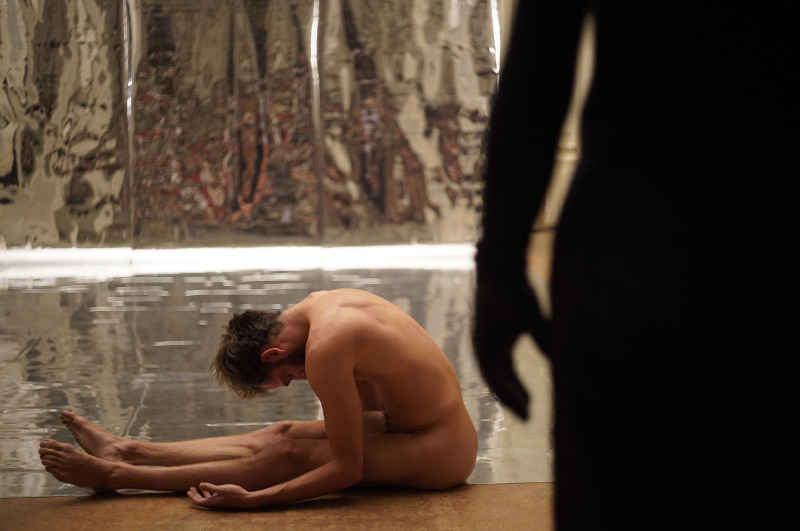
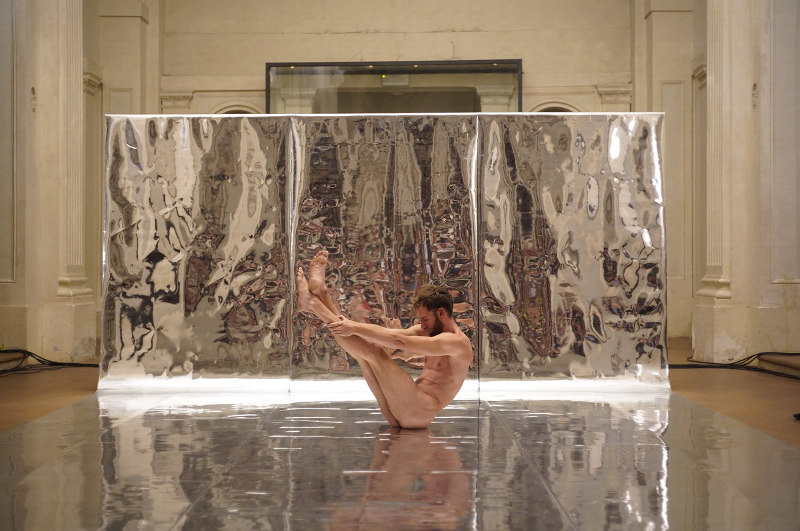
Finally, in Riflessioni, the interdisciplinary artist Claudia Caldarano tackles the festival’s theme with intellectual finesse and compositional wit, by asking what role bodies play in our constructions, misconstructions, and deformations of reality. The set is minimal: a distorting mirroring surface and background in a deconsecrated church (Auditorium Santa Chiara). Here, Caldarano, in a total-black outfit, with peremptory gestures, manipulates and shifts across the space the naked body of Maurizio Giunti. While, at first, we are captured by the docility of Giunti as pure matter, we soon realize how the distorted reflections of his body, which continuously splinters and unexpectedly recomposes, alter the authority of Caldarano’s creative act, unveiling its neurotic impulses –– and hypnotizing our perception. At the end, a black cloth covers the mirror and Caldarano’s body, which, in an ultimate game of inversion, crawling around the space, becomes the invisible seat for the quiet, unpretentious parade of Giunti’s bareness. This is probably the most convincing statement about an anti-authoritarian ethic of living at Kilowatt Festival.
Melissa Melpignano (PhD, UCLA) is a dance scholar, writer, and performer. A recipient of the Selma Jeanne Cohen Award for dance research, she works as an Assistant Professor of Instruction and Director of Dance at The University of Texas at El Paso. Her writings appear in The Dancer-Citizen, Dance Research Journal, AJS Perspectives, The Oxford Handbook of Jewishness and Dance, among others.
